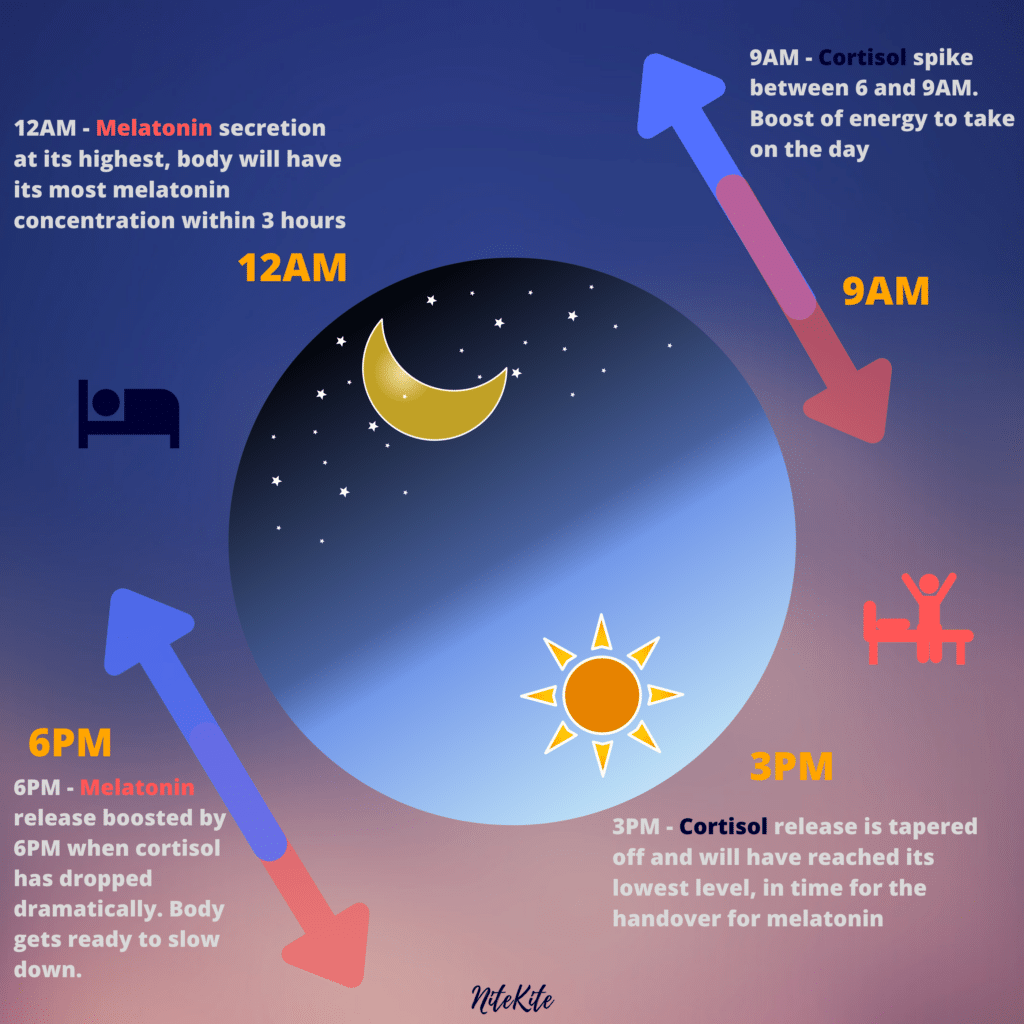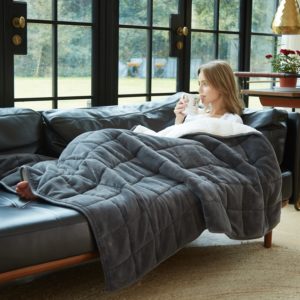What Is Melatonin? And Why Is It Banned in The UK?
Let’s start with the simplest description of melatonin. In essence melatonin is a hormone, meaning its primary producer is the brain. Specifically it is a hormone that is produced in darkness. So why has the mainstream media taken notice of melatonin, and what does it have to do with sleep?
And why is it approved for over-the- counter sale in the US and Canada but banned in the United Kingdom?
Melatonin and The Circadian Rhythm
What most of us know as our “body clock” is actually in reference to the Circadian rhythm. A circadian rhythm is the internal process that controls the sleep-wake cycle, which, purposefully, rather than conveniently, refers to a 24 hour period. With “Circa” = Latin for “day” or “around” – this means that in effect, the circadian rhythm repeats every day and night cycle.
This brings a direct link between sleep and melatonin production: As humans, we are as much a product of our environments as other animals, especially mammals. We have adapted as a species over hundreds of thousands of years to have a built-in body clock which is coordinated with the timings of our hormone production, for each hormone. We take cues from our environment in this case light = day = awake, and dark = night = sleep.

The circadian rhythm allows us to “capitalise” on the environment and its resources. This meant that in our early history, we used light and warmth indicators to hunt, eat and mate. In the mid to late night and early hours of the morning, the hormone cortisol is produced which has been shown to be responsible for waking and light-sleeping and eventually waking as light in the environment increases.
For simplification melatonin is the hormone that is produced when the reverse conditions are true; darkness increases and our bodies are put into a restful state.
Connection Between Blue Light and Melatonin
Since the observance of melatonin as a natural sleep regulator, much scientific research has been produced and with it many products created to artificially induce the effects to produce sleep. It is beneficial for every one of us to have some grasp on the process and how this works in the body to get a general understanding of how science has successfully manipulated melatonin to make it useful in consumption to induce sleep.
Melatonin directly responds to certain propensities of blue-light emission. Due to the sharp increase in the use of smartphones, personal computers, Ipads and televisions, many of us are becoming aware of the nature of blue light and the effects it has on sleep and wakefulness.
For simplification purposes we can understand that the blue light emitted from these devices is above the wavelength required for optimum melatonin production – which is why we see a rise in “blue-light blockers” in the form of apps for our devices, or even special glasses for looking at screens at night.
The common misconception however (ironically, for simplification for the masses) is that blue light is totally unnatural.
Blue light is produced in nature, albeit at a much lower wavelength, the human body has adapted to. The devices which produce much higher wavelengths are unnatural and therefore, prevent melatonin production when we need it most, whereas light bulbs, and even candles which have been in use in darkness for hundreds of years, do not interrupt the sleep cycle where watching a screen at night inadvertently does.
The Advent Of Sleeping Pills
Since the discovery of melatonin in 1958, synthesis of the hormone as an oral pill has been widespread. The first patent for melatonin came in the 1990s and it has been possible to purchase it as a sleeping aid in the US and Canada without prescription ever since.
The negative effects of melatonin are few and far between, and mild at best. The use has been observed in short medium and long term in a variety of studies with different study groups. The information taken from these studies and the fact that there have been many, means there are many stances on the use of melatonin as a sleep aid as benefits have been mixed.
For example, long haul flights have been shown to have a direct effect on the production of melatonin on the body, which also explains the “jet lag” phenomenon, and studies have shown that melatonin supplements have a very high success rate in combating jet lag and even promoting sleep in shift-workers. So specific in fact that, that the benefits can be seen most when travelling eastward.
However it has been noted that although it helps to promote sleep, the evidence for getting longer sleep is still uncertain.
The Problem With Melatonin
Although the pills are available in the UK and Australia, the use is restricted. In fact, in the US it is not an FDA approved food substance – which suggests it is only available for purchase over the counter as it has been shown that is not a danger to health – although side-effects have been observed:
- Headaches
- Nausea
- Dizziness
- Drowsiness
What was interesting about the findings in the clinical trials that observed such side-effects, was that the same effects were found in the placebo (empty, did not contain melatonin) dosage taken by the control group.
The BBC reported in 2004 that while “Many people swear by the benefits, but others have pointed to evidence that the hormone can produce side effects, including a drop in lung function in asthmatics.
And in the UK it is “off licence” – only available on prescription if the doctor who is prescribing is prepared to take personal liability for any side effects”
In this regard we can understand that the main reason for the regulation of melatonin as an over the counter medicine in the UK is simply due to tighter restrictions, where in the US, unless a product is seen as potentially harmful the market will decide whether or not the good will be produced.





